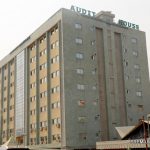...To get all news updates, Join our WhatsApp Group (Click Here)
Also Join our WhatsApp Channel (Click Here)
Oil marketers are increasingly worried they can’t import petrol due to the dollar shortage in the country. Despite the deregulation of the downstream sector, concerns have been raised about the potential comeback of the country’s persistent fuel scarcity.
Expectations were high when oil marketers canvassed for the removal of fuel subsidies, and deregulation of the downstream sector. Many were optimistic that the deregulation of the downstream sector would break the monopoly of the Nigerian National Petroleum Company Limited in petrol importation and bring an end to the country’s perennial scarcity of the product.
However, months after President Bola Tinubu pronounced an end to fuel subsidies on May 29, the country has not been able to end NNPCL’s monopoly in petrol importation.
After the first batch of 27 million litres of petrol imported by Emadeb Energy in July, independent oil marketers have not been able to bring in a single drop of petrol. The national oil firm has remained the sole importer of petrol.
The monopoly in the downstream sector has made a mess of the deregulation of the sector, giving NNPCL the power to continue to fix prices and putting the country at risk of fuel scarcity.
The Nigerian Midstream and Downstream Petroleum Regulatory Authority and NNPCL had argued that other marketers were free to import petrol, as those who had applied for importation licenses had been given.
The National Controller Operations of the Independent Petroleum Marketers Association of Nigeria, Mike Osatuyi, told The PUNCH that marketers were not importing petrol because of forex scarcity and the increasing price of crude oil at the international market.
“Marketers are not importing because of the price. But the pro forma invoice still exists, and marketers can still pick it up from the NNPCL since it is still the only one importing,” he said.
Oil price rose to $94.95 per barrel on Thursday and a dollar was exchanged for N770 at the Investors’& Exporters’ forex window and 985/$ at the alternative market.
Emadeb Energy’s Chief Executive, Adebowale Olujimi, during the arrival of the product vessel in June, said petrol importation was not “sustainable”.
“Petrol importation is not a sustainable way for a country to run. From what we saw when PMS price rose to over N600 per litre, it is an indication that the dynamics of the business is a tough one. It requires huge US dollars to bring in this. The way forward is for local refineries to be revived,” he said.
A source in the Major Oil Marketers Association of Nigeria told our correspondent that the market was deregulated so that other independent marketers could also bring in their products. He explained that it was supposed to give rise to healthy competition, which would eventually bring down prices. That dream, he said, was now a “mirage”, as marketers had not been able to access forex.
“NNPCL has reduced importation. And the whole idea was for private individuals to also import petrol to augment what NNPCL brings in. But marketers are not importing. So, NNPCL still remains the only importer,” he added.
The NNPCL’s spokesperson, Garba-Deen Muhammad, told our correspondent in June that the company would cut down its fuel imports programme in August when the Dangote Refinery commences operations.
NNPCL owns a 20 per cent stake in Dangote Refinery.
Corroborating Muhammed, while speaking to journalists after a meeting with oil marketers in Abuja in June, the Chief Executive of NMDPRA, Farouk Ahmed, said NNPCL had cut down on importation.
Since the end of subsidies, which cost the country about N12tr, prices of petrol have risen from between N180 and N200 per litre to between N614 and N700 per litre. There were fears that the price could go as high as N720 per litre due to the rising exchange rate and the rising price of crude at the international market, but the NNPCL has since allayed the fear.
“Nobody wants to run at a loss. So, we are all watching to see what happens. The foreign exchange is the problem because the naira keeps weakening against the dollar. No bank is willing to even stick out its neck to bankroll a deal. Now, depots are running out of stock, and may soon be forced to fall back to NNPCL for supplies,” another source told The PUNCH on Thursday.
The controversy surrounding products supplies got even messier when the IPMAN Mosinmi Depot recently threatened to institute a legal case against the NNPCL over failure to supply its members with products eight months after payment.
According to IPMAN Mosinmi Depot in a statement, each member had paid N25 million per 45,000 litres of petrol truck, but it had not been supplied.
A source close to the situation, told The PUNCH that the affected marketers were up to four thousand.
The spokesperson of NNPCL, Garba Mohammad, did not respond to inquiries on the allegation.
But a source at the NNPCL, who begged not to be mentioned because he was not authorised to speak on the matter, said that NNPCL should not blamed for issues relating to petrol because it was not the only importer of the product.
“Why is everybody blaming NNPC for fuel scarcity? NNPC is no longer the sole importer because the sector is now deregulated. Other marketers should also go and import because they have been given licenses. Why are they still dependent on NNPCL for products?” the source queried.
The country has witnessed two incidents of fuel scarcity since the government announced the deregulation of the downstream sector and the removal petrol subsidy.
The Chairman of Satellite Depot of IPMAN, Akin Akinrinade, blamed one of the incidents on stock shortage.
“Nobody is saying anything to us yet. And as we speak, we are still not loading products here. In fact, the situation is worsening because the queues continue. Even some of NNPCL Retail stations also don’t have products for sale. I believe it is a stock issue, and the NMDPRA should be able to tell us what is really happening. I know they won’t want to say the truth,” he said.
However, the President of the Petroleum and Natural Gas Senior Staff Association of Nigeria, Festus Osifo, debunked the claim that NNPCL was out of stock of petrol.
“I can assure you that there are enough products in the country,” he declared.
The IPMAN national controller of operations also said there was no cause for alarm.
“NNPCL has assured us that there is no cause for alarm. So, let us take them for their words,” he remarked.
A source at the Nigerian Midstream and Downstream Petroleum Regulatory Agency, who wanted to be anonymous, told The PUNCH that there was more than enough stock in-country.
According to him, a total of 200,000 metric tonnes, equivalent to 450 million litres, were in shore tanks at various depots in Lagos as of early September.
Dangote refinery misses production deadline
With marketers unable to import petrol, they are now bagging on Dangote’s 650,000 barrels per day refinery, which had been scheduled to commence operations in October.
It was earlier planned to start operations in August, but it missed the target.
The President of Dangote Group, Aliko Dangote, during the opening of the refinery by former President Muhammadu Buhari in May, said the ceremony was the “beginning of a great journey, a milestone in a new and exciting trajectory for the downstream sector of Nigeria’s oil and gas industry.
“It is our firm commitment that we will replicate in this sector what we have achieved in the cement and fertiliser markets, where Nigeria transited from being the largest importer of these products to a net exporter.
“Your excellencies, distinguished guests, our first product will be in the market before the end of July or beginning of August this year,” Dangote said.
However, findings revealed that the management of the facility was unsure of when the refinery would begin production.
A source from Dangote Refinery, who spoke on condition of anonymity, informed The PUNCH that there have been numerous negative reports on the refinery ever since it was launched.
“Some said it would be in 2025. There was even a report that the refinery was issued a license to import petrol as a cover-up for the commissioning that was done in May. The management will institute legal suits against the paper that wrote that report, and the reporter would be the first to be picked up.
“For now, the management has not come out with any official date.
“But I wonder why people are so interested in someone else’s business. It is a private refinery and not government-owned, and the management is also eager for it to start production. Billions of dollars have gone into that place, and they also want to start making a profit,” the source noted.
According to the source, nobody is busy probing why NNPCL refineries are yet to start refining despite billions of allocations that have gone into revamping them.
The source wondered why everyone was busy probing a private refinery.
Another source told The PUNCH that the volatility in the country’s forex market had stalled the importation of some equipment needed in the Dangote Refinery.
The $20bn project was conceived in 2013 and planned for completion by 2016, but construction did not start till 2017.
Experts’ advice
The president of PENGASSAN advised the Federal Government to focus on completing the Port Harcourt Refinery instead of waiting for the Dangote Refinery.
“We should rather focus on making other refineries work because it would cut down on freight rates from importation, and reduce prices. Dangote is a private businessman and can decide tomorrow that he will not refine again, although the government has a 20 per cent stake in the refinery. We should rather push for our own refineries, and ask the government when the Port Harcourt refinery is going to start refining petrol,” he stated.
On his part, IPMAN’s Osatuyi said there was no cause for alarm as far as petrol supply was concerned as the NNPCL was still importing.
According to him, management of the Dangote refinery may have delayed production at the facility due to some internal challenges.
“There is nothing to worry about because Dangote refinery is a private business, and he may have one or two issues that did not make the refinery commence production. It is better to be sure and then commence production at the right time than start now and then start facing challenges. Let’s be patient with them,” he said.
He also advised the Federal Government to ensure that other local refineries come on stream rather than depend on the Dangote Refinery.
You can get every of our news as soon as they drop on WhatsApp ...To get all news updates, Join our WhatsApp Group (Click Here)
Also Join our WhatsApp Channel (Click Here)

















